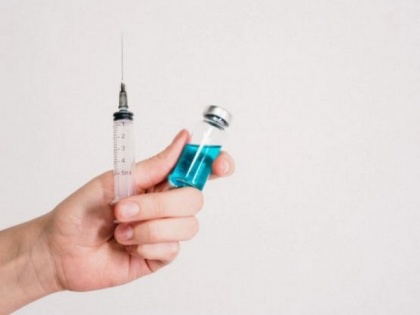Organ transplant recipients remain vulnerable to COVID-19 even after second vaccine dose: Study
By ANI | Published: May 7, 2021 08:46 AM2021-05-07T08:46:52+5:302021-05-07T08:55:02+5:30
Researchers at Johns Hopkins have found that two doses of a vaccine against SARS-CoV-2 -- the virus that causes COVID-19 -- confers some protection for people who have received solid organ transplants, it's still not enough to enable them to dispense with COVID safety measures including masks and physical distancing.

Organ transplant recipients remain vulnerable to COVID-19 even after second vaccine dose: Study
Researchers at Johns Hopkins have found that two doses of a vaccine against SARS-CoV-2 -- the virus that causes COVID-19 -- confers some protection for people who have received solid organ transplants, it's still not enough to enable them to dispense with COVID safety measures including masks and physical distancing.
The findings that were published in the Journal of the American Medical Association (JAMA).
This is a follow-up study to an earlier one published in March in JAMA, in which the researchers reported that only 17 per cent of the participating transplant recipients produced sufficient antibodies after just one dose of a two-dose COVID-19 vaccine regimen.
"While there was an increase in those with detectable antibodies -- 54 per cent overall -- after the second shot, the number of transplant recipients in our second study whose antibody levels reached high enough levels to ward off a SARS-CoV-2 infection was still well below what's typically seen in people with healthy immune systems," says study lead author Brian Boyarsky, M.D., a surgery resident at the Johns Hopkins University School of Medicine.
"Based on our findings, we recommend that transplant recipients and other immunocompromised patients continue to practice strict COVID-19 safety precautions, even after vaccination," Boyarsky says.
People who receive solid organ transplants (such as hearts, lungs and kidneys) often must take drugs to suppress their immune systems and prevent rejection. Such regimens may interfere with a transplant recipient's ability to make antibodies to foreign substances, including the protective ones produced in response to vaccines.
The new study evaluated this immunogenic response following the second dose of either of the two messenger RNA (mRNA) vaccines -- made by Moderna and Pfizer-BioNTech -- for 658 transplant recipients, none of whom had a prior diagnosis of COVID-19. The participants completed their two-dose regimen between Dec. 16, 2020, and March 13, 2021.
In the most recent study, the researchers found that only 98 of the 658 study participants -- 15 per cent -- had detectable antibodies to SARS-CoV-2 at 21 days after the first vaccine dose. This was comparable to the 17 per cent reported in the March study looking at the immune response after only one vaccine dose.
At 29 days following the second dose, the number of participants with detectable antibodies rose to 357 out of 658 -- 54 per cent. After both vaccine doses were administered, 301 out of 658 participants -- 46 per cent -- had no detectable antibody at all while 259 -- 39 per cent -- only produced antibodies after the second shot.
The researchers also found that among the participants, the most likely to develop an antibody response were younger, did not take immunosuppressive regimens including anti-metabolite drugs and received the Moderna vaccine. These were similar to the associations seen in the March single-dose study.
"Given these observations, transplant recipients should not assume that two vaccine doses guarantee sufficient immunity against SARS-CoV-2 any more than it did after just one dose," says study co-author Dorry Segev, M.D., PhD, the Marjory K. and Thomas Pozefsky Professor of Surgery and Epidemiology and director of the Epidemiology Research Group in Organ Transplantation at the Johns Hopkins University School of Medicine.
Segev says that future studies should seek to improve COVID-19 vaccine responses in this population, including additional booster doses or modulating the use of immunosuppressive medications so that sufficient antibody levels are achieved.
In addition to Boyarsky and Segev, the Johns Hopkins Medicine research team includes William Werbel, Robin Avery, Aaron Tobian, Allan Massie and Jacqueline Garonzik-Wang.
( With inputs from ANI )
Disclaimer: This post has been auto-published from an agency feed without any modifications to the text and has not been reviewed by an editor
Open in app